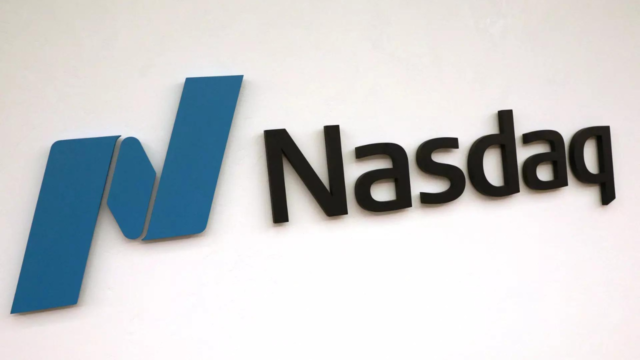
NEW DELHI: The Nasdaq Composite Index soared to a record high on February 29, 2024, marking its first peak since November 19, 2021. The index advanced 144.18 points or 0.90% to close at 16,091.92, driven by investor enthusiasm for artificial intelligence, particularly impacting stocks like Nvidia.
Following a significant downturn in December 2022, where the Nasdaq was over 30% below its previous record, the recent surge reflects a broader market recovery.This upturn is attributed to Federal Reserve rate cut anticipations and burgeoning AI technology interests.
AI surge: Rick Meckler of Cherry Lane Investments noted, “The anticipation of an artificial intelligence boom has really provided support for these stocks even at extended valuations.” Nvidia has emerged as the forefront of this AI-driven market rally, dominating about 80% of the high-end AI chip market.
Nvidia has seen a 60% increase in its stock price this year, becoming the third most valuable company on Wall Street. Its recent financial performance and significant role in the AI sector have contributed to this surge.
Inflation and interest rates: A slowing headline inflation number could encourage the Federal Reserve to start cutting interest rates from their 23-year high sooner rather than later.
But the closely watched “core inflation” measure, which strips out volatile food and energy costs, increased by 0.4 percent from a month earlier, indicating an uptick in underlying inflation from December to January.
However, the US stock market overall has responded positively to the latest inflation reports, with the Nasdaq setting new records.
Following Wall Street’s lead, Japan’s Nikkei share average also reached a new all-time high, driven by tech-related stocks and optimistic projections regarding US interest rates.
This rally, underscored by robust corporate earnings and tech advancements, highlights the growing influence of AI on financial markets and anticipates future economic trajectories influenced by technological innovation and monetary policy adjustments.
(With inputs from agencies)
Following a significant downturn in December 2022, where the Nasdaq was over 30% below its previous record, the recent surge reflects a broader market recovery.This upturn is attributed to Federal Reserve rate cut anticipations and burgeoning AI technology interests.
AI surge: Rick Meckler of Cherry Lane Investments noted, “The anticipation of an artificial intelligence boom has really provided support for these stocks even at extended valuations.” Nvidia has emerged as the forefront of this AI-driven market rally, dominating about 80% of the high-end AI chip market.
Nvidia has seen a 60% increase in its stock price this year, becoming the third most valuable company on Wall Street. Its recent financial performance and significant role in the AI sector have contributed to this surge.
Inflation and interest rates: A slowing headline inflation number could encourage the Federal Reserve to start cutting interest rates from their 23-year high sooner rather than later.
But the closely watched “core inflation” measure, which strips out volatile food and energy costs, increased by 0.4 percent from a month earlier, indicating an uptick in underlying inflation from December to January.
However, the US stock market overall has responded positively to the latest inflation reports, with the Nasdaq setting new records.
Following Wall Street’s lead, Japan’s Nikkei share average also reached a new all-time high, driven by tech-related stocks and optimistic projections regarding US interest rates.
This rally, underscored by robust corporate earnings and tech advancements, highlights the growing influence of AI on financial markets and anticipates future economic trajectories influenced by technological innovation and monetary policy adjustments.
(With inputs from agencies)










































